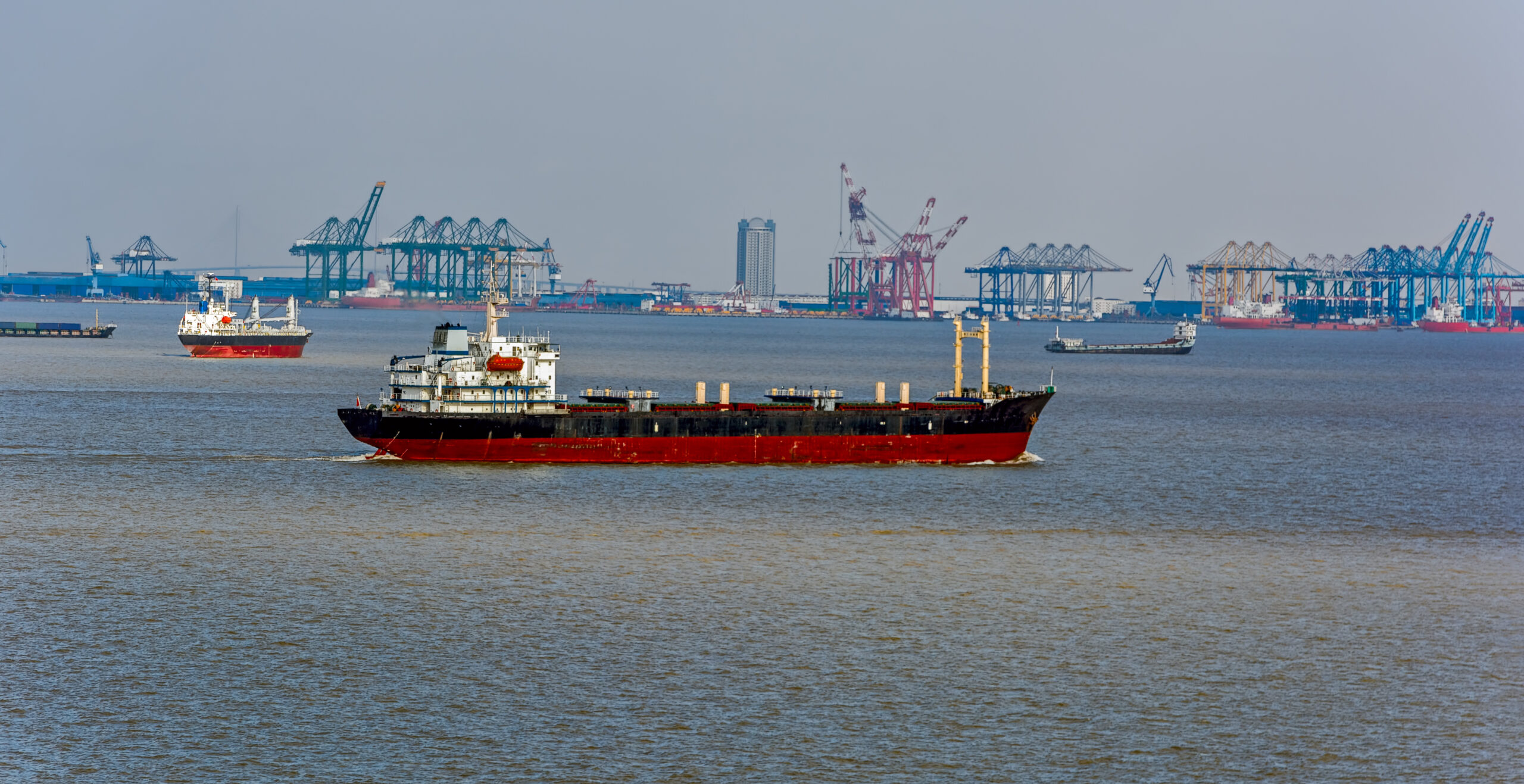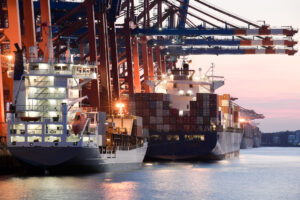China takes countermeasures against “discriminatory” restrictions on Chinese maritime operators, ships, or crew, which may include special fees on vessels calling at Chinese ports and restrictions on port entry.
Chinese Premier Li Qiang has signed a State Council decree revising regulations on international maritime transport to better govern related activities. The new regulations came into effect on September 28.
The U.S. government will begin phasing in new service fees on maritime transport services of Chinese-owned and Chinese-built vessels calling at U.S. ports. These fees, which will take effect on October 14, will be introduced gradually over the next three years.
Germany’s container shipping giant Hapag-Lloyd, like other companies such as Maersk, HMM, and others, ruled out the application of extra charges to its customers once section 301 of the U.S. Trade Representative (USTR) comes into effect.
In this regard, Hapag-Lloyd stressed in an advisory to its customers that “such regulatory changes may raise questions about potential impacts on your supply chain. Please be assured that we have reviewed the situation and taken proactive measures to ensure continued service stability and reliability for you. You can expect no impact on services and no additional surcharges.”
Earlier this month, the Copenhagen-based company Maersk reassured its clients that “no surcharge will be applied,” and “services will remain unchanged.”
Based on the current structure and applicability of the service fee, HMM says that it is fully prepared and does not plan to implement a surcharge at this time to cover USTR-related fees as currently structured.
“HMM do not anticipate adjustments to our U.S. port rotations or your existing service plans. HMM have no intention of introducing any surcharge in connection with this rule,” HMM noted in its release on September 26.
According to the revised regulations, China will take necessary countermeasures against countries or regions that impose or support discriminatory bans, restrictions, or similar measures.
These updated rules apply to actions targeting Chinese operators, vessels, or crew engaged in international maritime transport and related services.
“Such countermeasures will be enforced unless relevant treaties or agreements provide adequate and effective remedies,” the decree stated.
As it is reported, the revised maritime regulations also require operators of international shipping trading platforms to submit information to Chinese transport authorities.
Industry stakeholders express concerns over operational challenges as the implementation date for the new US fees approaches.
“As a Hong Kong-based company, OOCL falls within this scope,” carrier OOCL said in a corporate message.
“OOCL’s future in the U.S. is firm. We will remain steadfast in protecting our customers’ interests and providing a comprehensive range of dependable services under the OOCL brand. OOCL is here to stay. We will navigate these challenges with resilience and determination driven by our dedication to excellence and our unwavering support for our customers,” the company noted.
When the planned measures were first announced, some vessel operators pre-emptively reassigned China-built ships away from US routes.
What is certain, however, is that the upcoming period will hold key decisions for the maritime trade.
On the evening of September 19, China’s president Xi Jinping spoke with U.S. president Donald J. Trump on the phone. The two presidents had an in-depth exchange of views on the current state of China-U.S. relations and other issues of mutual interest.
President Xi stressed that the U.S. side should refrain from imposing unilateral trade restrictions so as not to disrupt the outcomes of multiple rounds of consultation between the two sides.



